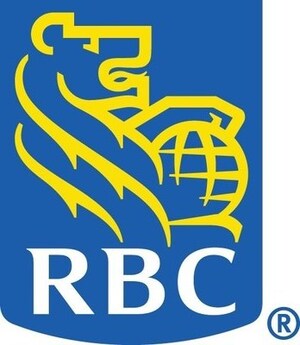Stuck in the middle: RBC poll finds Canadians struggle to address children's education, aging parents and own retirement needs
TORONTO, Jan. 23, 2013 /CNW/ - Canadians (aged 18 to 54) are concerned that their ability to save for retirement will be impaired both by saving for their children's education (48 per cent) and by taking care of their aging parents (36 per cent), according to the 23rd Annual RBC RRSP Poll.
Despite the potential strain of these family priorities on their retirement savings, more than half (57 per cent) of Canadians aged 18 to 54 say their parents' retirement experience has shaped their expectations of retirement.
"While Canadians may see their parents' retirement experience as a model for what to expect, the reality is that their retirement may not be the same, particularly if they are part of the sandwich generation with both aging parents and school age children," said Amalia Costa, head, Retirement Strategies, RBC. "Canadians know that juggling competing financial priorities creates enormous strain on both time and money. A financial advisor can make it easier to develop a retirement plan to balance your financial commitments and family life."
Retirement will likely look different for the next generation of retirees, as employer-sponsored pension plans become more rare. The RBC poll found that one-quarter (26 per cent) of Canadians (aged 18 to 54) expect a pension income from an employer to be their primary source of income in retirement and, similarly, fewer than one-in-five (18 per cent) of them have a defined benefit pension plan.
"The growing demands on time and money can make meeting retirement goals a challenge, but Canadians don't have to do this on their own," added Costa. "Taking the time to meet with a financial advisor is one of the best investments you can make in your financial future. An advisor can help review your financial priorities; understand your income sources and your savings and investment options - all to help make your retirement goals a reality."
Costa provides the following practical advice to help you live for today and save for tomorrow:
- Show me the money - Look for hidden sources of contribution funds. If you have debt, take advantage of lower interest rates to reduce your overall borrowing costs and free up some of your monthly cash flow. For example, you can do this by consolidating higher interest credit card balances into a loan or home equity line with a lower interest rate.
- Automate your savings habit - Get into the good savings habit of paying yourself first by setting up an automatic contribution plan to coincide with your payroll deposit. The funds will come off the top and are often not missed.
- Start thinking about your retirement income plan - If you are within a few years of retirement, switch your focus to establishing your retirement income plan. Translate your vision for the lifestyle you want in your retirement into financial requirements and work with an advisor to learn about your new sources of retirement income and how these will fund your new lifestyle.
About RBC's financial planning advice, resources and interactive tools
The RBC Advice Centre offers free online advice, resources and tools regarding retirement and estate planning including RRSPs, the RSP-Matic® Savings Calculator and updates on the federal government's RRSP First Time Home Buyers' Plan. In addition, RBC's myFinanceTracker, a comprehensive online financial management tool, offers all personal RBC online banking clients the ability, at no cost, to create a set budget and track their spending habits and to access H&R Block tax-related apps in the new myTax Centre, to help manage and plan their taxes.
About the 23rd Annual RBC RRSP Poll
The 23rd Annual RBC RRSP poll was conducted by Ipsos Reid between October 24 and November 27, 2012 via a random sample of 1,225 Canadian adults in the general population (aged 18 and over). The results are based on samples where quota sampling and weighting are employed to balance demographics and ensure that the sample's composition reflects that of the actual population according to Census data. Quota samples with weighting from the Ipsos online panel provide results that are intended to approximate a probability sample. A weighted probability sample of 1,225 Canadian respondents, with 100 per cent response rate, would have an estimated margin of error of ±3 per cent, 19 times out of 20.
SOURCE: RBC

WANT YOUR COMPANY'S NEWS FEATURED ON PRNEWSWIRE.COM?
Newsrooms &
Influencers
Digital Media
Outlets
Journalists
Opted In



Share this article